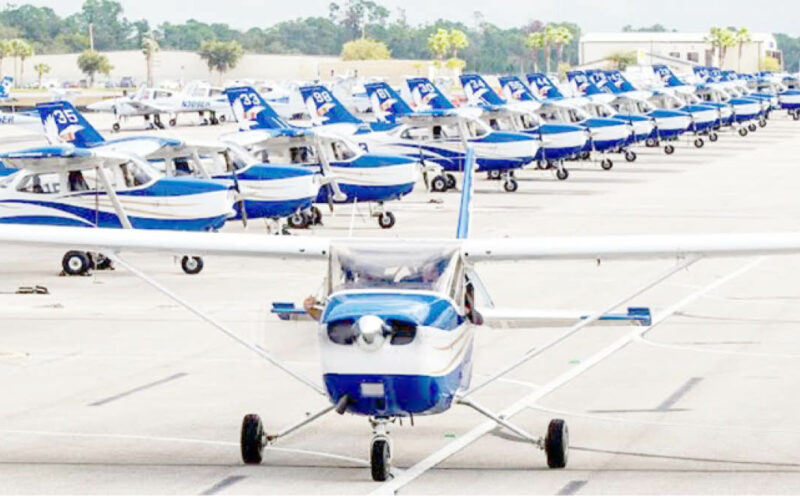By Halimat Bello
Given that air travel is the quickest form of transportation, the airline business is crucial to Nigeria’s economy on many levels. The elasticity of demand, externality, wage inequality, monetary policies, and budgetary policies has significant impacts on the airline business.
Only the state of the market and the consumer’s travel motivation affects demand elasticity. The December 10, 2005 disaster significantly damaged Nigeria’s airline sector because the Nigerian airline industry depends on the present market which is constantly changing and thought to be unpredictable. The desire for airline tickets has been significantly impacted over time by events like inflation, rising oil costs, and terrorist attacks. Since the dawn of the jet age, carriers have entered and continued to operate in the aviation market. Some have been in operation from the outset.
The Nigerian Aviation industry has made some significant breakthroughs; for instance, Nigerian Airlines, which was established about a year before the beginning of the jet age, was able to procure new jets and establish itself as one of the industry’s titans by the late 1950s. Thanks to the incredible wealth that the airline had amassed as a result of being a part of airlines that existed before the jet age.
According to Jacobson (2004), airline operations have some benefits, including the promotion of globalisation and an increase in international economic cooperation. Next, it makes it easier for products, services, and production inputs to move internationally. Thirdly, it has an effect by directly generating employment opportunities and indirectly doing so by opening doors for the tourism and hospitality industries; jobs in the hospitality sector, which include hotels, resorts, restaurants, etc.
With all these benefits stated above, another way to improve the sector is for commercial aircraft operators to figure out how to boost productivity while also improving airline operations. If not, there might be fewer carriers over the coming years. If the airline wants to improve, certain steps must be taken. Airlines have to invest in information technology. The ability to completely overhaul an existing system and put radical changes into place to gain a competitive edge is the difference between floundering along and remaining relevant.
Leading airlines use technology more and more in their operations, whether it’s to improve aircraft upkeep or streamline the customer experience. The future of aviation depends on whether airline carriers embrace technology and more automated processes as competition heats up and more airlines become aware of the need for adaptability. The aviation business is transitioning to the cloud, just like many other sectors.
Moreover, airline industries can also improve by communicating with employees. The success of the airline business depends heavily on its workforce. Airline workers enable air travel and the more invested they are in the airline’s goals, the better they will be able to achieve them.
With all the points stated above, I believe I’ve been able to drive home my point that there is still a lot of work needed to be done regarding the Nigerian aviation sector to propel the nation to greater feats.
Halimat is of Heritage Global Academy Ikorodu, Lagos



